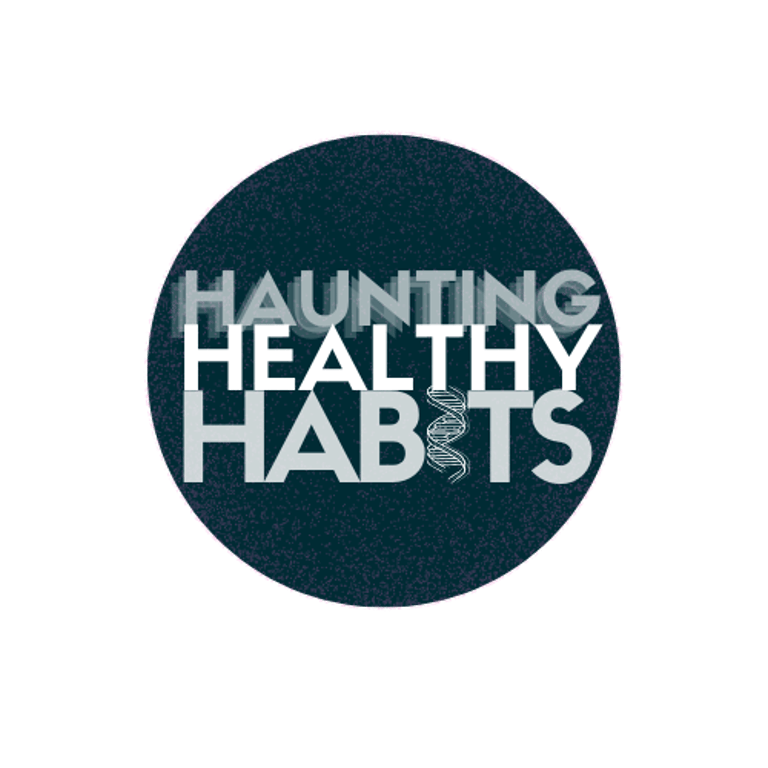SAVE UP TO 50%! EXCLUSIVE DISCOUNT ON EBOOKS ONLY AT HAUNTINGHEALTHYHABITS.COM
Salt Siren’s Sneaky Tactics: Unmasking Hidden Sodium in “Healthy” Foods
Do you think your "healthy" meals are safe from salt? Think again. The Salt Siren hides in plain sight, turning seemingly wholesome foods into sodium traps. From "low-sodium" snacks to organic soups, your choices might be fueling high blood pressure, kidney damage, and heart disease without you even knowing. Discover where sodium sneaks into your diet, learn science-backed strategies to reduce your intake, and regain health control. With practical tips, real-life transformations, and a step-by-step plan to reset your taste buds, this guide empowers you to silence the Salt Siren for good.
SINISTER CRAVINGS
Dr. Sophimar Garcia, MD
12/24/20243 min read


A Physician's Guide to Escaping the Grip of Hidden Sodium
You check the label: "Low sodium," it promises. You trust it. Yet your blood pressure won't lower, your rings are tight, and fatigue feels like a constant companion. The Salt Siren, a master manipulator, hides in the foods you trust most, turning your best intentions into health risks.
As a physician who has personally faced the challenges of reducing sodium intake, I've seen her sneaky tactics in countless patients. That seemingly innocent green smoothie powder, protein-packed breakfast bar, or post-workout electrolyte drink? They're all part of her deceptive game. Let's uncover where sodium hides, its risks, and how to break free from her grip—step by step.
The Sodium Crisis: How Much Is Too Much?
General Limit: The American Heart Association recommends no more than 2,300 mg of sodium per day, moving toward an ideal limit of no more than 1,500 mg per day for most adults.
Ideal for Heart Health: An ideal limit of no more than 1,500 mg per day is especially recommended for those with high blood pressure.
Why It Matters:
Excess sodium sneaks into your daily meals and slowly wreaks havoc:
High Blood Pressure: Sodium holds water, increasing blood volume and straining your heart.
Heart Disease & Stroke: Long-term high blood pressure damages arteries, leading to life-threatening conditions.
Kidney Damage: Your kidneys work overtime to excrete sodium, leading to chronic strain.
Osteoporosis: Sodium leaches calcium from bones, increasing fracture risk.
Bloating & Fatigue: Sodium retention causes puffiness and drains your energy.
The Salt Siren's Favorite Hiding Spots
Even foods marketed as "healthy" can pack surprising amounts of sodium. Here's where she hides:
Breakfast Betrayals
Whole grain bread: 150 mg per slice
Cottage cheese: 400 mg per ½ cup
Instant oatmeal: 200 mg per packet
Breakfast bars: 150 mg each
Plant-based sausage: 500 mg per serving
Lunch Traps
Turkey deli meat: 450 mg per serving
Canned tuna: 400 mg per can
Vegetable soup: 850 mg per cup
Salad dressings: 250 mg per tablespoon
Mixed nuts: 100 mg per handful
Sneaky Snacks
Protein bars: 200 mg each
Veggie chips: 300 mg per handful
Diet beverages: 100 mg per can
Energy drinks: 200 mg per bottle
These small numbers quickly add up, often exceeding your daily limit before dinner.
Note: The sodium content can vary between brands and specific products. For detailed nutrient information, refer to the USDA National Nutrient Database. Please CLICK to check---FoodData Central
Michelle's Story: A Real-Life Transformation
Michelle, a dedicated professional, thought she was making healthy choices. She counted calories, prioritized organic foods, and tracked macros religiously. Yet she couldn't lower her blood pressure or reduce constant fatigue.
After reviewing her diet, we uncovered her daily sodium intake:
Breakfast smoothie: 500 mg
Salad toppings and dressings: 800 mg
Protein sources: 1,200 mg
Snacks: 600 mg
Dinners: 900 mg
Her "healthy" diet contained over 4,000 mg of sodium—nearly double the recommended limit. With minor adjustments, such as swapping pre-packaged items for fresh ingredients and using herbs for flavor, Michelle reduced her sodium intake, lowered her blood pressure, and regained her energy.
While MIchelle's story is a personalized anecdote, the general information about sodium content in foods is supported by USDA National Nutrient Database data. Please CLICK to check--FoodData Central
Breaking the Salt Siren's Spell
Escaping her grip doesn't mean sacrificing flavor—it's about choosing better options:
Start Small:
Replace pre-seasoned foods with fresh herbs, garlic, and citrus for natural flavor. Using herbs and spices can enhance flavor without adding sodium.
Read Labels Like a Pro:
Aim for foods with less than 140 mg per serving. Watch out for "hidden sodium" in processed or packaged items. American Heart Association
Reset Your Taste Buds:
Gradually reduce sodium intake over 4 weeks. Your palate will adapt, allowing you to enjoy the natural flavors of food. American Heart Association
Transform Your Meals: Incorporating fresh fruits, vegetables, and unprocessed foods can help reduce sodium intake.
Breakfast: Plain oats with fresh fruit and nuts (0 mg added sodium).
Lunch: Fresh salad with olive oil and lemon.
Dinner: Grilled proteins with spice rubs and steamed vegetables.
Holiday Survival Guide: The Salt Siren's Festival Feast
The holidays amplify her influence through:
Traditional seasoning blends and canned family recipes.
Convenient party platters are laden with sodium.
Catered office events and restaurant gatherings.
Defend Yourself:
Bring a low-sodium dish to share.
Choose fresh vegetable platters over salty snacks.
Stay hydrated and limit processed holiday treats.
Bringing low-sodium dishes and choosing fresh options can help manage sodium intake during gatherings.
Track Your Success
Measuring progress can help you stay motivated. Watch for:
Lower blood pressure readings.
The rings fit comfortably again.
Reduced morning puffiness.
Increased energy and focus.
Enhanced ability to taste natural flavors.
Measuring Progress: Monitoring blood pressure and reducing sodium intake can improve heart health.
Your Sodium Freedom Starts Here
The Salt Siren's sneaky tactics lose their power when you're armed with knowledge. By making informed choices, you can protect your health, enjoy your meals, and regain control.
📖 Ready to take the next step? Discover more strategies in Sinister Cravings: The Haunting of Healthy Habits, Volume 1. Pre-order the 15-volume series today at 50% off and start your transformation journey.
CLICK & GRAB YOUR 📖 SINISTER CRAVINGS
🌟 Visit HauntingHealthyHabits.com to break free from the Salt Siren's grip and unlock a healthier, more vibrant life.
#SaltFreedom #SodiumAwareness #HealthyLiving #HeartHealth #SinisterCravings #HauntingHealthyHabits
